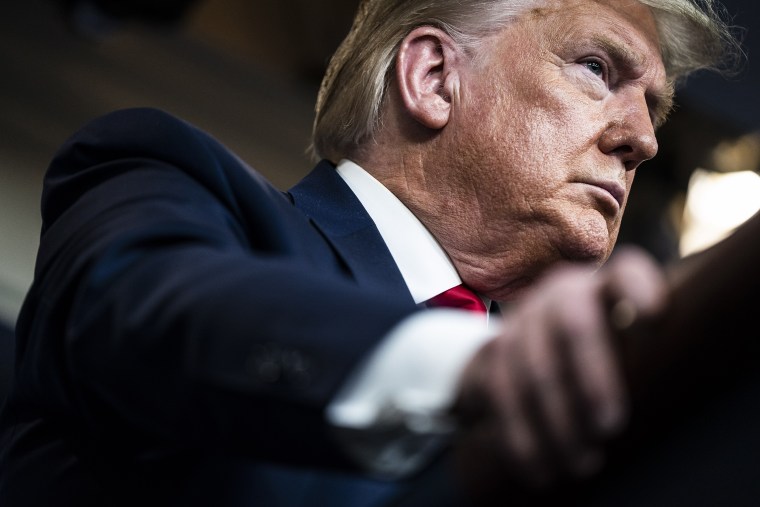Now that a New York City grand jury has indicted former President Donald Trump, all eyes will be on the actual indictment — the legal document that outlines the charges.
The document is still under seal with the court, but the charges are likely to relate to Trump’s involvement in a $130,000 payment his former lawyer Michael Cohen made to Stormy Daniels on the eve of the 2016 election, according to reporting by NBC News and other outlets. Cohen maintains the money was to keep her quiet about the affair she says she had with the married Trump in 2006, and federal prosecutors have said that was for the purpose of influencing the outcome of the 2016 election. Trump has denied any wrongdoing and consistently said there was no affair.
Here are five legal issues to look out for when the court papers are made public.
What’s the legal theory of the case?
Prosecutors could charge Trump with falsifying the business records of the Trump Organization to disguise money he gave Cohen as “legal expenses,” when in fact it was to reimburse him for hush money; that charge is a misdemeanor.
To make it a felony under New York law, prosecutors need to prove that records were falsified with the intent to conceal or commit “another crime." So what's that second crime in this case? We don't know yet.
Making it about a federal campaign violation is viewed as a risky move, because federal law typically supersedes state law when it comes to federal election crimes, and no court has ever upheld a jury conviction on that ground.
If it’s a state crime, such as a conspiracy charge, what’s the evidence for that?
Are there crimes unknown to the public?
Prosecutors in Manhattan previously passed on charging Trump in relation to the alleged hush money scheme, and the federal investigation into Trump about the issue withered away long ago.
So, are more alleged crimes yet to be revealed in this new indictment? Former special prosecutor Mark Pomerantz outlined a detailed financial fraud case against Trump in a recent book, but District Attorney Alvin Bragg didn’t prosecute.
Do any of those allegations resurface? Trump’s longtime chief financial officer Allen Weisselberg was sentenced to five months behind bars for his role in the company’s tax fraud case. It’s an open question as to how his role is described in the new indictment, as well.
How do prosecutors prove Trump’s ‘intent to defraud’?
The New York law on falsifying business records importantly requires an “intent to defraud.” But who was defrauded in this case?
New York prosecutors have brought a number of past cases involving phony business records, but they mostly involved a person submitting the fake records to a third party, like an insurer or a tax agency. Did Trump’s business records, listing checks he paid to Cohen as “legal expenses,” ever see the light of day? If they didn’t, what’s the prosecution’s theory about who was harmed?
What does the indictment say about Trump's and Cohen's roles?
Cohen is a key witness, but prosecutors can’t hinge their entire case on his testimony. In New York, no one can be convicted on the basis of testimony from an accomplice to a crime without corroborating evidence. What’s the corroborating evidence in this case?
At times, Trump’s attorneys have suggested Cohen acted to pay Daniels without Trump’s knowledge or blessing or that Trump was simply following his then-lawyer’s advice — but federal prosecutors said Cohen “acted in coordination with and at the direction of” Trump. What do the contemporaneous documents say?
Is it a ‘speaking’ indictment?
Sometimes prosecutors file a bare-bones charging document that doesn’t reveal much. In other cases, prosecutors paint a far more vivid picture of their allegations (with detail that isn’t required to meet the elements of the crime), known as a speaking indictment. What route do they take here?

